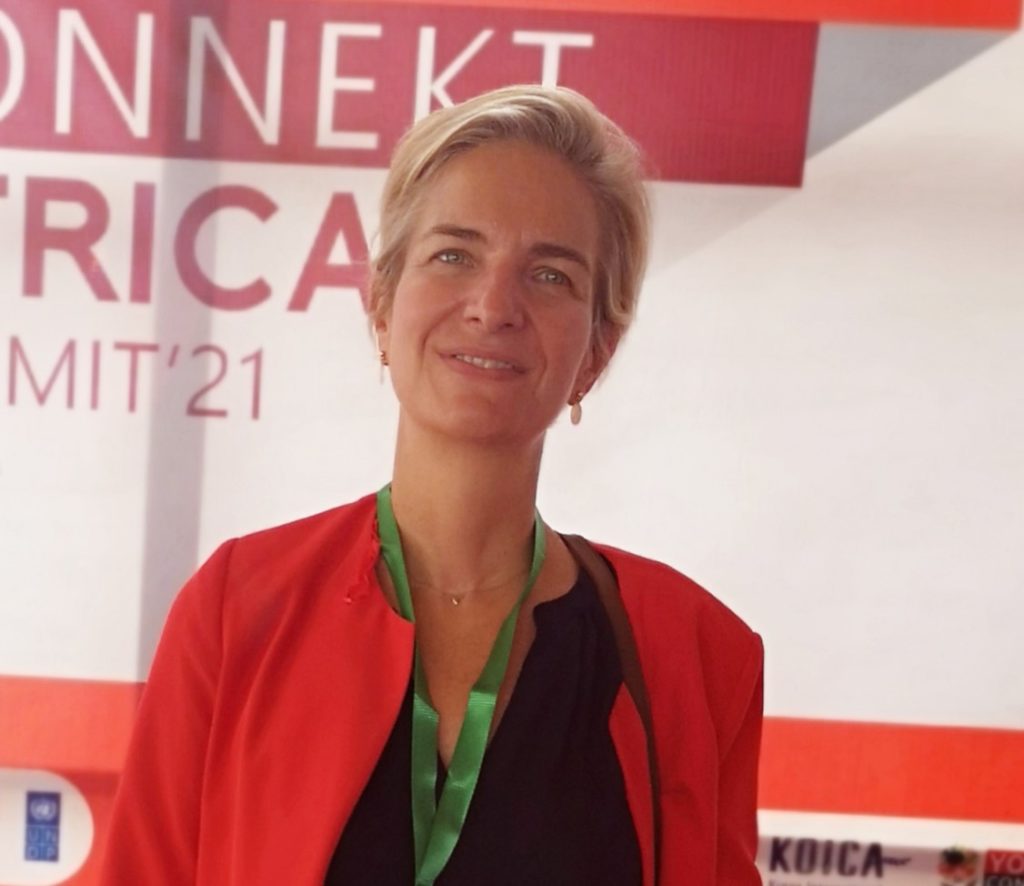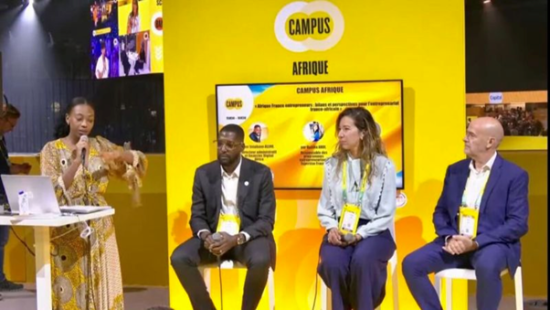The International Finance Corporation (IFC) assessment of the African continent’s demand for digital skills, published before the COVID-19 pandemic[1], has the merit of providing an unvarnished overview of the situation: while 230 million jobs requiring digital skills will need to be filled in Africa by 2030, only 690,000 professionals in the sector have been identified today. Since then, this demand for digital expertise has certainly increased, given the digital acceleration observed in the context of the crisis we have been experiencing for the past eighteen months and whose effects are still being felt. From this point of view, the COVID-19 pandemic has demonstrated that digital solutions can rapidly solve a number of challenges – health (track and trace applications, telemedicine solutions ) and educational (implementation of digital learning platforms, evolution of remote teaching practices to guarantee interactivity and maintaining a human link during periods of confinement) – and, on the other hand, positively transform the activity of companies of all sizes, as long as they know how to successfully negotiate their digital shift.
Training tech talent, the new challenge for Africa
Under these conditions, the training of tech talent becomes the new challenge for Africa, if it has the means to do so. Is there any training in digital skills today? And further upstream, is there a solid system for teaching STEM disciplines (science, technology, engineering and mathematics) and raising awareness of the need to develop an entrepreneurial spirit through project-based pedagogies, a fundamental prerequisite for the massive development of digital skills? Yes, but certainly not everywhere where it would be necessary – 5 countries (South Africa, Egypt, Morocco, Nigeria and Kenya) concentrate 60% of the continent’s digital talent today – and certainly not enough in a logic of placing local skills, if we judge by the fact that 70% of companies operating in Africa recognize that the lack of local talent forces them to recruit internationally (IFC data).
Similarly, though the acquisition of basic skills in research and in the efficient use of available software may be developing, along with coding courses, the thinking on this subject remains insufficiently forward-looking, in order to anticipate the skills, including human skills, which will make the difference in the future and that are often more advanced – data analysis, artificial intelligence, development of mass B2B solutions for industry, creativity, multidisciplinary and systemic approaches. This observation is corroborated by the results of a needs analysis that we conducted with our partner Edtech Connections. It showed that companies today are mainly lacking “soft skills” training in order to sustain their growth. Obviously, it will take time to change this situation.
Digital skills training, one of Digital Africa’s priorities
So how can we transform the major potential of African youth into a pool of tech talent for the continent and the world? Based on the observation that there is no digital Africa without tech talent, we – the Digital Africa teams – have made training in digital skills one of our priorities. This commitment is reflected in Talent4Startups, a program to support digital training, presented at the Africa-France 2021 Summit, and set up with Make IT and the support of the German government. This initiative benefits above all employment, since its major performance indicator is the placement of these scholarship holders in companies seeking local talent.
In fact, we are talking about 250 scholarships granted to young people over one year, in collaboration with 4 strategic educational partners, in order to reach a target placement rate of 70%. This is the essence of this project, to set in motion a momentum for an impact: Talent4Startups was designed with the objective of building a dynamic skills repository in line with the needs to have more impact, while giving schools and training organizations in the digital field tools to better assess the effectiveness of their programs, based on objective criteria also integrated into the project. Moreover, our initiative is pan-African, since the program will initially cover twelve countries, both French and English speaking, major tech clusters such as Nigeria, Kenya and South Africa, but also intermediate hubs such as Morocco, Tunisia, Algeria, Côte d’Ivoire, Senegal, Cameroon, DRC, Ghana and Rwanda.
« Starting from the needs expressed by field actors to propose co-constructed programs that provide real operational solutions »
More fundamentally, beyond the networking of beneficiaries and partners involved, which is strategic to improve the quality of the training made available, our philosophy is to start from the needs expressed by field actors to offer programs that are co-constructed and provide real operational solutions. The sharing of expertise and feedback in a learning community approach is at the heart of our approach. The Resilient Summer School in the summer of 2020 [2], the first stage of the Digital Africa Campus, enabled us to structure a mentoring method based on peer-to-peer learning to accelerate learning curves with confidence. Similarly, we were particularly aware of the fact that technology can sustainably and positively transform the business of more traditional companies in the real economy, which inspired our future program ‘tech for non tech’ specifically for the latter. Because we want everyone to benefit from this digital transition. In the end, we must get involved and invest today, to put these talent at the service of Africa’s economic development tomorrow. We must mobilize today to enable Africa, tomorrow, to consolidate its place as a global hub of applied tech innovation and to export more and more its digital creativity to other regions of the world.
Making Africa a pool of digital talent for the real economy
So, is it possible to make Africa a pool of digital talent foSo, is it possible to make Africa a pool of digital talent for the real economy? Yes, it is possible and it starts today.





